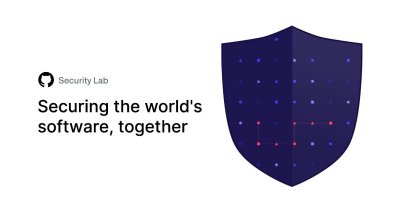
Announcing CodeQL Community Packs
We are excited to introduce the new CodeQL Community Packs, a comprehensive set of queries and models designed to enhance your code analysis capabilities. These packs are tailored to augment…


We are excited to introduce the new CodeQL Community Packs, a comprehensive set of queries and models designed to enhance your code analysis capabilities. These packs are tailored to augment…


The GitHub Security Lab examined the most popular open source software running on our home labs, with the aim of enhancing its security. Here’s what we found and what you can do to better protect your own smart home.

The GitHub Security Lab audited DataHub, an open source metadata platform, and discovered several vulnerabilities in the platform’s authentication and authorization modules. These vulnerabilities could have enabled an attacker to bypass authentication and gain access to sensitive data stored on the platform.

Object Graph Notation Language (OGNL) is a popular, Java-based, expression language used in popular frameworks and applications, such as Apache Struts and Atlassian Confluence. Learn more about bypassing certain OGNL injection protection mechanisms including those used by Struts and Atlassian Confluence, as well as different approaches to analyzing this form of protection so you can harden similar systems.

When it comes to secure database access, there’s more to consider than SQL injections. OWASP Top 10 Proactive Control C3 offers guidance.

In this post, I’ll discuss how to apply OWASP Proactive Control C2: Leverage security frameworks and libraries.

Defining your security requirements is the most important proactive control you can implement for your project. Here’s how.

This lesser-known OWASP project aims to help developers prevent vulnerabilities from being introduced in the first place.

During an audit of Apache Dubbo v2.7.8 source code, I found multiple vulnerabilities enabling attackers to compromise and run arbitrary system commands on both Dubbo consumers and providers. In this blog post I detailed how I leveraged CodeQL as an audit oracle to help me find these issues.

This blog describes a security vulnerability in the infrastructure that supports Germany’s COVID-19 contact tracing efforts. The mobile (Android/iOS) apps are not affected by the vulnerability and do not collect and/or transmit any personal data other than the device’s IP address. The infrastructure takes active measures to disassociate true positives from client IP addresses.

In this post I’ll show how input validation which should be used to prevent malformed inputs to enter our applications, open up the doors to Remote Code Execution (RCE).

This post details how an open source supply chain malware spread through build artifacts. 26 open source projects were backdoored by this malware and were actively serving backdoored code.